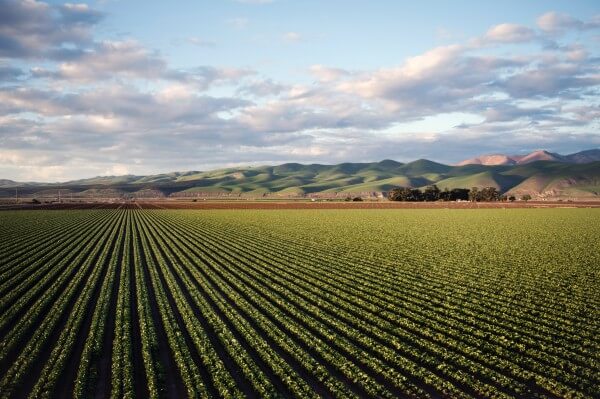Advantages of Irrigation
The following are the direct and indirect advantages of irrigation:

Direct advantages of Irrigation
Following are the 4 types of direct advantages of irrigation:
(i) Increase in Food Production
Irrigation improves the yield of crops, which leads to an increase in food production, thus developing people as well as society.
(ii) Revenue generation
When a consistent supply of water is guaranteed for irrigation, the cultivators can grow certain predominant or expensive crops(like cash crops) instead of substandard or low price crops. In this manner, income is created.
(iii) Protection against drought
The provision of adequate irrigation facilities in any region ensures protection against the failure of crops from famine or droughts.
(iv) Mixed cropping
Means sowing of at least two types of crops together in a similar field. This practice is followed so that if climate conditions are not good for one crop it might be reasonable for other crops. But if irrigation facilities are made available, the need for mixed cropping is eliminated:
Indirect advantages of Irrigation
The following are the 4 types of indirect advantages of irrigation:
(i) Power generation
Major river valley projects are generally planned to generate hydroelectric power together with irrigation. However, comparatively, a small quantity of hydroelectric power might also be generated at a small cost on projects which are primarily planned for irrigation.
(ii) Transportation
The irrigation canals are provided with unsurfaced roads primarily for purposes of inspection and maintenance. These roads give a decent pathway to nearby people. The network of irrigation canals can be used for the transportation of goods as well as human beings.
(iii) Groundwater table
In areas where irrigation facilities are provided, due to constant percolation of a portion of the water flowing in the canals and also that is supplied to the field, the groundwater storage is increased and consequently, the groundwater table is raised.
(iv) Employment
During the construction of irrigation works, employment is provided.
Disadvantages of Irrigation
1. The enormous supply of irrigation water tempts the cultivators to use more water than required. Due to excess water supply to the field, water percolates into the soil. Hence, due to the constant percolation, the groundwater table would be raised and will prompt waterlogging.
2. The groundwater can get polluted due to seepage of the nitrates (applied to the soil as fertilizers) into the groundwater.
Read Also:
Under-Sluices And Their Function